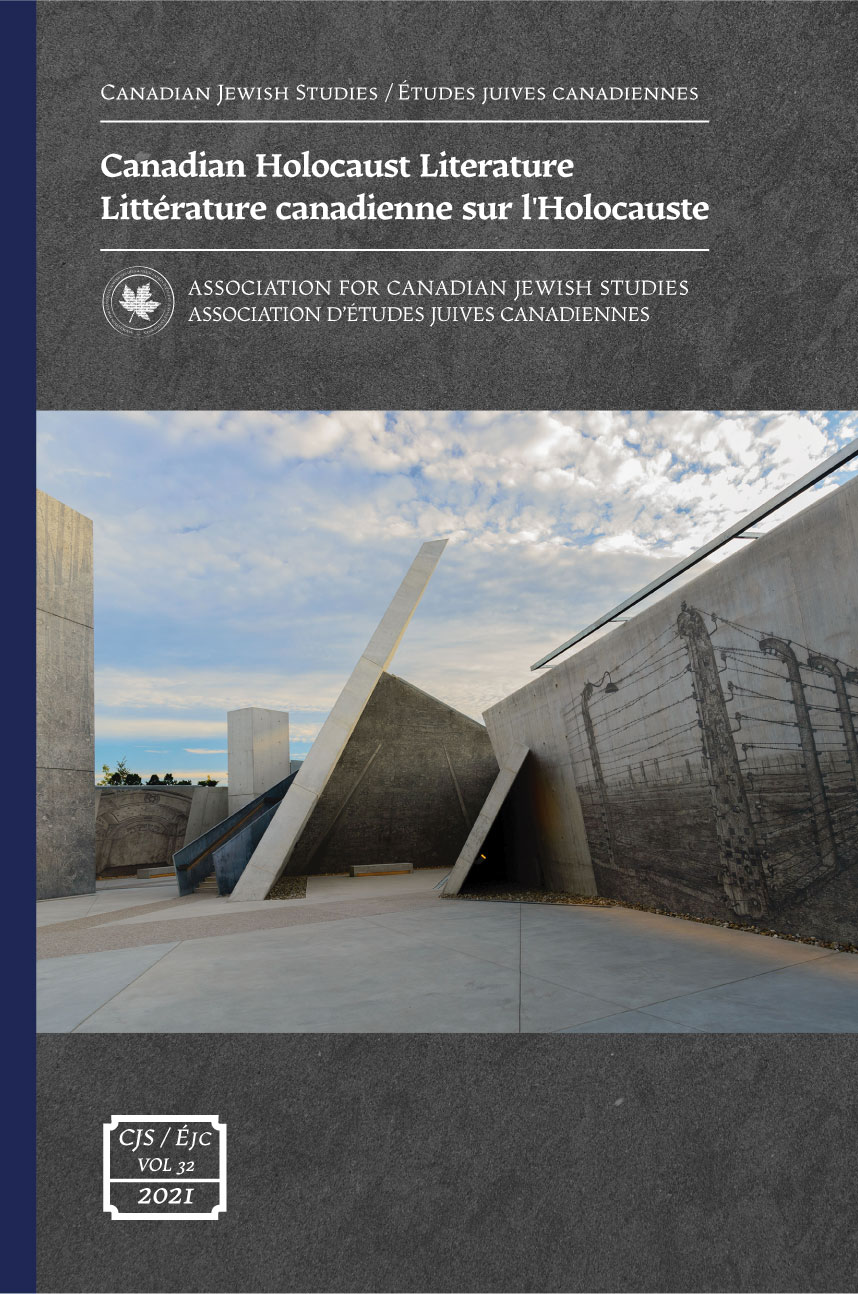“Were I not here to record it, there would be no trace”: Chava Rosenfarb's “In the Boxcar” and Patrick Modiano's Dora Bruder
DOI:
https://doi.org/10.25071/1916-0925.40239Keywords:
Holocaust, LiteratureAbstract
Patrick Modiano’s Dora Bruder and Chava Rosenfarb’s “In the Boxcar” – an excerpt from the as-yet not fully translated novel Letters to Abrasha – rely on original and creative methods in their responses to events and memory associated with the Holocaust. In contrast with these works, this article also considers the approach taken in Michal Glowinski’s memoir The Black Seasons, as well as in Barbara Engelking and Jacek Leociak’s The Warsaw Ghetto: A Guide to the Perished City. These texts convey, in a new light, pre-war and wartime sites: Paris, Auschwitz, Lodz, Warsaw, and the ghettos installed by the Germans in the latter two cities.
Dora Bruder de Patrick Modiano et «In the Boxcar» de Chava Rosenfarb - un extrait du roman Letters to Abrasha, qui n’a pas encore été entièrement traduit - s’appuient sur des méthodes originales et créatives dans leurs réponses aux événements et à la mémoire associés à l’Holocauste. En contraste avec ces oeuvres, cet article examine également l’approche adoptée dans les mémoires de Michal Glowinski, The Black Seasons, ainsi que dans The Warsaw Ghetto : A Guide to the Perished City de Barbara Engelking et Jacek Leociak. Ces textes présentent, sous un jour nouveau, des sites d’avant-guerre et de guerre: Paris, Auschwitz, Lodz, Varsovie, et les ghettos installés par les Allemands dans ces deux dernières villes.
Downloads
Published
Versions
- 2021-11-01 (3)
- 2021-10-31 (2)
- 2021-10-25 (1)
How to Cite
Issue
Section
License
Canadian Jewish Studies/ Études juives canadiennes is a journal dedicated to the open exchange of information; therefore the author agrees that the work published in the journal be made available to the public under a Creative Commons Attribution-Noncommercial-No Derivative Works 4.0 Unported License. The publisher (Association for Canadian Jewish Studies / Association d'études juives canadiennes) recognizes the author's intellectual property rights; authors retain copyright over their work. The author grants the publisher first serial publication rights and the non-exclusive right to mount, preserve, and distribute the intellectual property. The journal is digitized and published on the open access website http://pi.library.yorku.ca/ojs/index.php/cjs/index.







